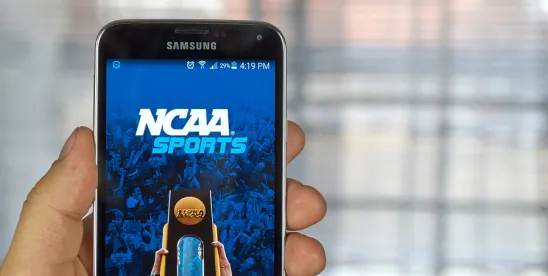A new chapter in college sports began on June 6, when U.S. District Judge Claudia Wilken granted final approval to the House v. NCAA settlement. This landmark $2.8 billion agreement will fundamentally reshape the structure of Division I athletics.
Among the most significant developments is the creation of the College Sports Commission (CSC), an independent regulatory body created by the “Power 5” conferences (ACC, Big Ten, Big 12, Pac-12, and SEC) and tasked with reining in Division I athletics. The CSC will be the central enforcement arm in this new era and will report to the Power 5 conference commissioners.
According to the CSC’s website, the organization will oversee all enforcement of the House settlement terms including “Revenue Sharing,” “Name, Image and Likeness Deals,” and “Roster Limits.” The CSC states that the NCAA “remains responsible for enforcement of rules not created in connection with the [House] settlement.”
Primarily, the CSC will oversee compliance with institution revenue sharing with student-athletes. Beginning July 1, participating institutions can directly pay athletes up to $20.5 million in the 2025-26 academic year through a revenue-sharing pool. The amount is scheduled to rise annually and expected to reach nearly $33 million by 2035. All Power 5 conference participants are automatically participants in revenue sharing. Other institutions have a June 30, 2025, deadline to “opt in” to revenue sharing to participate in direct student-athlete payments. Importantly, “revenue sharing” preserves the non-employee status of student-athletes — at least for now.
Additionally, the CSC’s influence extends beyond revenue sharing. The organization will oversee NIL compliance through NIL Go, a new system that requires all third-party NIL deals exceeding $600 to be submitted for review. Run in partnership with the accounting firm Deloitte, NIL Go will evaluate whether reported deals meet fair market value standards. If not, deals will be flagged and may be subject to CSC discipline.
With the House settlement eliminating scholarship limits, the CSC will oversee institution compliance with new sport-specific roster limits. This will include oversight of “designated student-athletes,” current athletes and recruits who will receive roster protection and not count against the new roster limits.
On July 6, the CSC named Bryan Seeley, a former U.S. Department of Justice attorney and MLB’s head of investigations, as the organization’s first CEO. With a background in high-profile compliance cases (including MLB’s sign-stealing and salary circumvention probes), Seeley will lead the CSC through uncharted terrain. His message: The time for clarity and enforceable rules is now. “The schools that signed on want rules and want them enforced,” Seeley said. “This is a new starting point.” And there’s a lot to enforce.
Uncertainty remains, as industry insiders question whether the system can truly rein in booster-funded collectives. In particular, whether NIL Go will be enforceable and discourage under-the-table deals. Still, the CSC has authority that the NCAA has long lacked, and schools are expected to sign formal participation agreements to abide by its rulings.
By creating the CSC, Power 5 conferences have created their own watchdog—and given it real authority.
Why it matters: For the first time, college athletes will receive direct compensation from their institutions. That shift, combined with NIL oversight and roster restructuring, is meant to bring order to what many had described as the “Wild West” of college sports.
As CSC enforcement ramps up and schools navigate the first year of revenue sharing, legal and legislative questions remain — including Title IX concerns, state law conflicts, and federal efforts to codify the system.
The Jackson Lewis Education and Collegiate Sports Group will continue to monitor developments with the CSC as new issues will arise in implementation, enforcement, and challenges to these new standards in collegiate sports. Please feel free to reach out to any member of the Education and Collegiate Sports Practice Group with questions.





 />i
/>i

